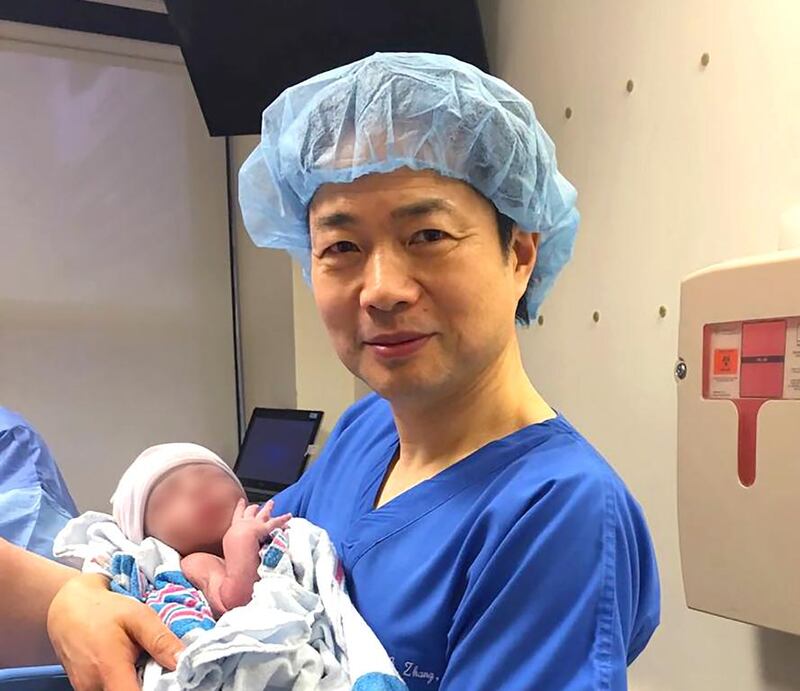ABU DHABI // The birth of the world’s first baby conceived with the DNA of three people has given renewed hope to parents in the UAE who have a high risk of passing on genetic diseases to their children.
But mitochondrial transfer – a controversial IVF therapy that made international headlines this week after fertility specialists in the United States confirmed a baby had been born using it – is a clinical procedure that needs years of evaluation before being used in the UAE, genetics experts and doctors say.
The healthy baby was born in April to Jordanian parents who travelled to Mexico for the treatment.
Dr Kathleen Lemarquand, a genetic counsellor at Dubai’s Fetal Medicine and Genetic Centre, said the scientific breakthrough could help parents carrying a debilitating disease to have healthy children.
“It is possible we will see this one day in the Emirates,” she said. “I think this is positive in that families will be able to have a child disease-free; that is what genetic testing is primarily for – to benefit the families who are losing children or having children with severe disabilities.”
Mitochondrial DNA transfer allows replacement of an egg’s defective mitochondrial DNA – the batteries that give cells energy – with healthy DNA from a female donor, to prevent children suffering conditions such as muscular dystrophy.
“Parents can go and do IVF and have embryos tested to avoid having a child with that particular condition,” said Dr Lemarquand, who said parents at risk of common genetic disorders in the UAE such as thalassaemia and metabolic genetic disorders were among those who could benefit.
Mitochondrial transfer is controversial because the procedure proposes to mend faulty DNA with genetic material from a “second mother”, resulting in babies having DNA from three people.
The baby is born with DNA passed down by its parents, containing inherited traits such as eye and hair colour and height, plus a small amount – about 1 per cent – of mitochondrial DNA donated by a second “mother”.
The treatment has divided medical professionals, with critics arguing it could be the step towards “designer babies”.
Dr Lemarquand disagreed. “Mitochondrial DNA is so small, really it would not be manipulating mitochondria to change personality traits or any type or thing that people might think is genetic interfering,” she said. “It doesn’t do that.”
Dr Gautam Allahbadia, IVF consultant and head of the Aster Fertility Clinic, said that while the mitochondrial transfer was a scientific step forward in IVF therapy, it was too early to tell just how beneficial the treatment may be in the long-term.
“Science shows the benefits but nobody knows the long-term side effects,” he said.
“We know this baby has been born without a syndrome but we need a long-term follow-up before we call this a miraculous cure.
“We do not know what happens to the baby in year one, year two, year three.”
He said it was unlikely the treatment would be available in the UAE anytime soon.
Mitochondrial transfer was legalised in the United Kingdom last year but so far no other country has introduced laws to permit the technique.
“It is very much a grey area -because they do not know by starting this they will be starting a fresh series of genetic -diseases,” said Dr Allahbadia.
He said that 15 years ago, in the United States, groups were testing cytoplasmic transfers – a fertility technique whereby cytoplasm from a donor egg is injected into an egg with compromised mitochondria, which brought about new genetic disorders. The procedure was later banned.
Mixing genes in -mitochondrial transfers could bring similar problems, said Dr Allahbadia.
“Also, having three people’s DNA in a baby is not normal,” he said.
“Putting the DNA of a third person, we don’t know how this will blend into the body.
“Could it cause some blood cancers? Some other problems?
“We simply don’t know.”
newsdesk@thenational.ae





